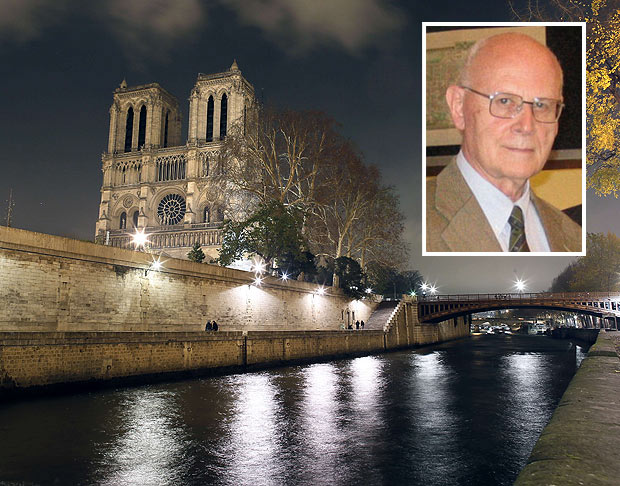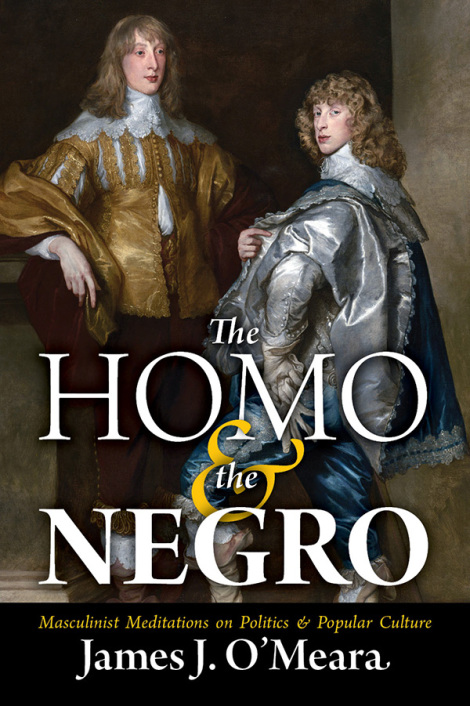Or:
White Nationalism, a hopeless cause
by John Martínez

Today The Drudge Report linked this article about the fifth day in a row of “youths” in Stockholm burning the city.
If you guys have any delusions about regular Whites watching appalling events like these (or, for that matter, the beheading of a British soldier by a repellent Black Muslim in London two days ago), and awakening to the racial dimension of the trouble mass immigration has put them in, you just have to read the comment section of this article to be disabused. Even when the commenters agree that there may be something wrong with “youths” supposedly protesting against perceived social injustices by destroying public and private property at random, they just can’t see the larger pattern of non-Whites terrorizing the White majority—in Stockholm, in London, in Paris—year after year, after year.
This commenter is particularly illustrating of what I’m trying to point at—more specifically, check this specific comment of hers. Here you have a chick who is obviously a Mestiza of whatever ethnic background (Pakistani? Indian?) lecturing European Whites about their moral obligation of feeding, housing, educating and providing jobs to non-white immigrants and their offspring, in the absence of which the said immigrants and their offspring are entitled to burn their cities to ashes.
How could these European societies have gone so low as to allow this surreal situation to become possible? Whatever the answer, one thing is certain in my mind after seeing the popular reaction at these events: trying to save these White societies as a whole is a mission doomed to failure, not only due to the level of moral decadence that the bulk of the public has sunk to, but also due to the pace of miscegenation of the native populations with the non-white immigrants. Whites with non-White relatives are an ever increasingly growing number of people and these folks will never support a White Nationalist movement in their countries. Never. The moronic Mestiza whose comments I linked above very probably has British relatives and they no doubt support her “right” to spit these obnoxious views on the British press.
The point I’m trying to make is this: the cause of White Nationalism is such a hopeless one given the disconnect between the White public at large and our views (which they see as abhorrent and despicable) that, maybe, the most feasible strategy would be to try and save a number of Whites that is just enough not to let the race go extinct; and then proceed to get a Lebensraum somewhere by whatever means. When a huge fire ravages through your house, you don’t try to save everything, just what is really indispensable.
Let’s be honest to ourselves: racially-conscious Whites are by a long shot the most far sighted individuals of their societies. I know that. You guys know that to. But I just don’t believe it is realistic to expect the average white to achieve this level of consciousness.
Historically speaking, Whites hardly ever have seen themselves as Whites proper—but rather as British, French, Germans or simply as Christians. It is true that a number of Germans during the Third Reich and, until a recent past, a number of Americans while in contact with Blacks and Indians did see themselves as Whites proper, but the question is: how long did this racial consciousness last? And if all it takes to root out this racial awareness from their minds is some amount of politically-correct propaganda, then the notion of a solid White, racially conscious nation is a hopeless one indeed—it’s like to consider building a castle on a sandbank.
As a Brazilian, I know where today’s White nations are headed to. Something like 15% of Brazil’s population is pure White, which makes up something like 30 million people. The problem is, the overwhelming majority of these people has non-White friends; has a relative married to a non-White, has married a non-White and/or has himself/herself non-White children. That is to say, the overwhelming majority of these folks are forever lost to the White Nationalist cause—and this will be your situation pretty soon.
In such a depressing scenario, maybe the lesser evil would be to try and close ranks among ourselves instead of trying to save people who do not want to be saved.
Pessimist as I may sound, there is an ultimately successful precedent for our cause: the kikes and their founding of modern Israel. If they have managed to get their own land, Whites can do the same—especially if we give up the naive notion that all Whites deserve to be saved from wholesale miscegenation and the world chaos that will ensue from it. In my humble opinion the Jewish State should be put side by side with works like Mein Kampf as road map for the White Nationalist movement.
__________
Chechar’s note: For articles explaining the meaning of the “Pod” metaphor in the title, just click on the category “Body-snatched pods” below. One of these articles, “Dies Irae,” pretty much summarizes my feelings about mankind in general and whites in particular. It’s probably the most inflammatory piece that has been written in the whole pro-white blogosphere.



